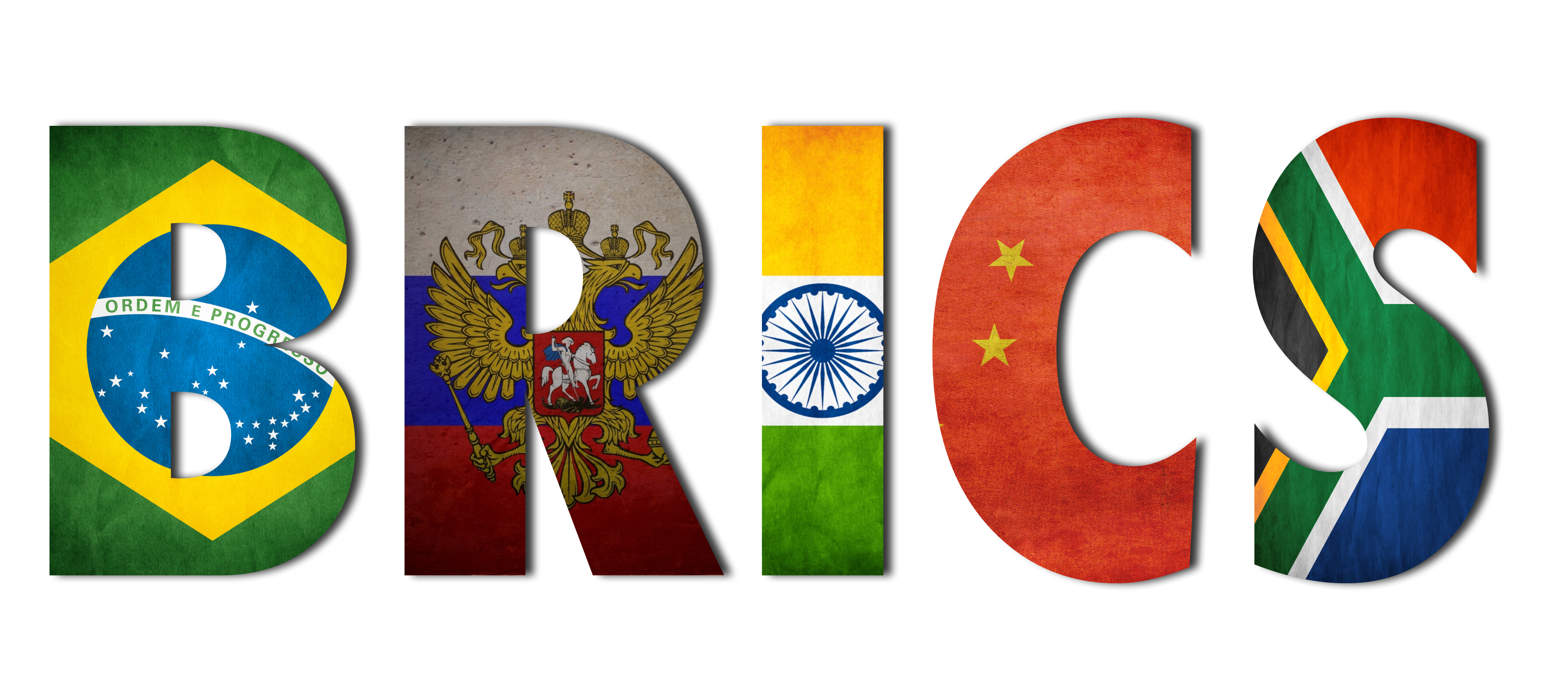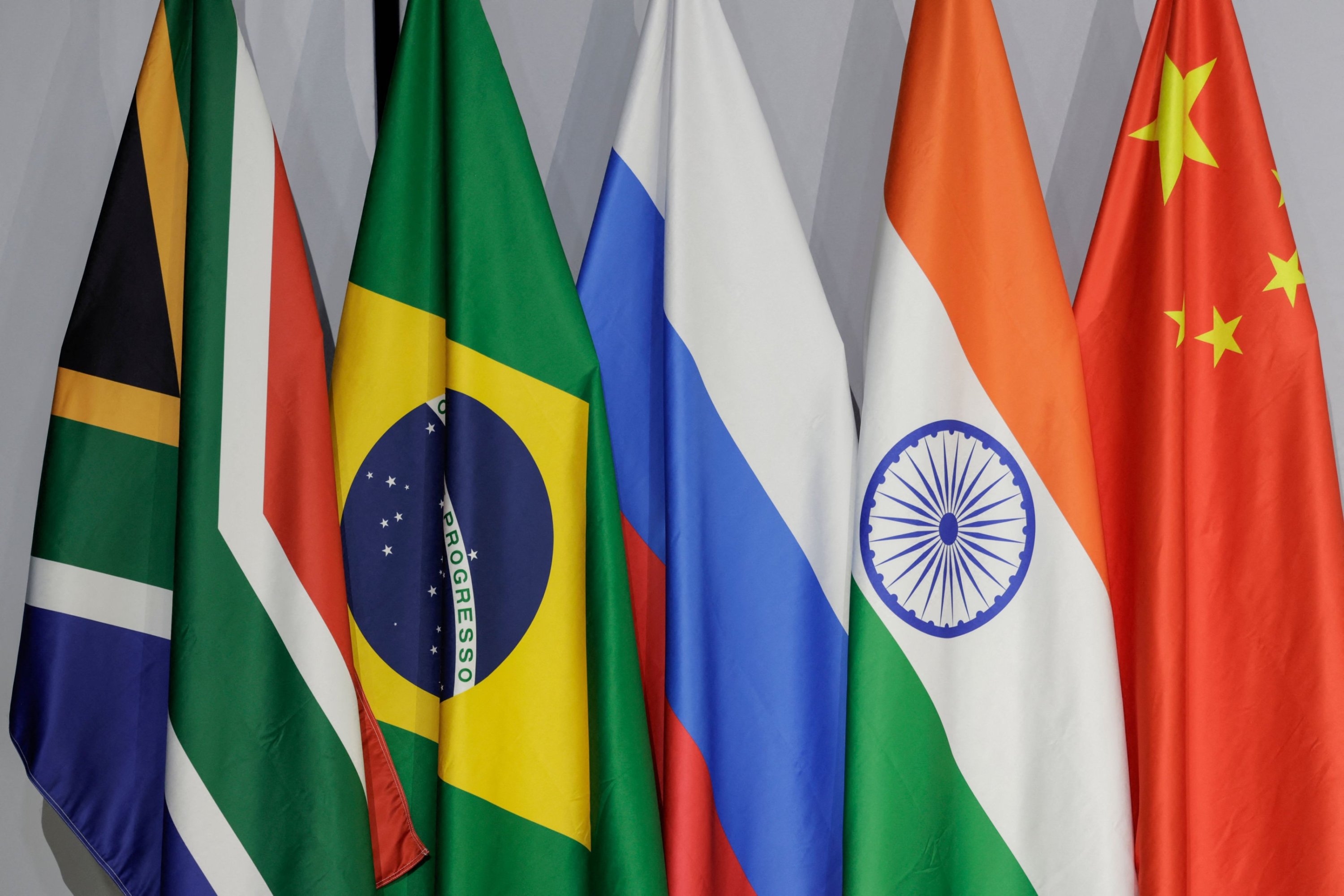BRICS is not just an acronym; it's a movement that's redefining the global economic landscape. Imagine a group of countries that together account for nearly 42% of the world's population and contribute significantly to global GDP. Yep, that's BRICS! This alliance of emerging economies is creating waves in international trade, finance, and diplomacy. So, buckle up as we dive into the world of BRICS and explore why it matters.
Back in 2001, when Goldman Sachs economist Jim O'Neill coined the term BRIC (Brazil, Russia, India, and China), he wasn't just throwing names around. He was pointing out the potential of these countries to become the driving force of the global economy. Fast forward to today, and South Africa joined the party in 2010, turning BRIC into BRICS. Now, this bloc represents more than just economic potential; it's a symbol of collaboration and shared vision.
But why should you care about BRICS? Well, if you're into global trends, economic stability, or even just curious about how the world works, understanding BRICS is like having insider access to the future of international relations. These countries are reshaping the rules of the game, and we're here to break it all down for you.
Read also:Jasmine Pinedas Shocking Survival Story A Tale Of Courage And Resilience
What Exactly is BRICS?
Let's start with the basics. BRICS stands for Brazil, Russia, India, China, and South Africa. But it's more than just a collection of countries; it's a strategic partnership aimed at fostering economic growth, social development, and political stability. Think of it as a global supergroup where each member brings something unique to the table.
Each country has its own strengths: Brazil is the agricultural powerhouse, Russia controls vast energy resources, India is the tech and innovation hub, China dominates manufacturing, and South Africa leads in minerals and mining. Together, they form a coalition that's hard to ignore.
History and Evolution of BRICS
The journey of BRICS began as a theoretical concept in 2001 and evolved into a formal grouping in 2009. The first summit took place in Yekaterinburg, Russia, where the leaders of Brazil, Russia, India, and China met to discuss collaboration on global issues. Since then, the group has held annual summits, each focusing on different aspects of cooperation.
In 2010, South Africa joined the group, completing the BRICS lineup. This expansion wasn't just about adding another member; it was about strengthening the bloc's influence in Africa and beyond. The evolution of BRICS reflects its growing importance in global affairs.
Key Milestones in BRICS History
- 2001: Jim O'Neill introduces the BRIC concept.
- 2009: First BRIC summit held in Russia.
- 2010: South Africa joins, forming BRICS.
- 2014: Establishment of the New Development Bank (NDB).
- 2015: Creation of the Contingent Reserve Arrangement (CRA).
Why BRICS Matters in Global Economics
BRICS countries collectively account for around 24% of global GDP and hold significant influence in international trade. Their economic policies and decisions can impact markets worldwide. For instance, when China sneezes, the global economy catches a cold. But it's not just China; all BRICS members play crucial roles in shaping the economic climate.
Moreover, BRICS is challenging the traditional dominance of Western financial institutions like the IMF and World Bank. The New Development Bank (NDB) and Contingent Reserve Arrangement (CRA) are examples of their efforts to create alternative financial systems. These initiatives aim to provide funding and support for development projects in emerging economies.
Read also:3 Movierulz Plz Your Ultimate Guide To Streaming Movies Safely And Legally
Impact of BRICS on Global Trade
BRICS countries are major players in global trade. They export everything from oil and gas to electronics and textiles. Their trade policies and agreements can influence prices and availability of goods worldwide. For example, Brazil's agricultural exports feed millions, while India's IT services power businesses globally.
Additionally, BRICS nations are working towards reducing trade barriers and enhancing cooperation among themselves. This intra-BRICS trade is expected to grow, further strengthening their economic ties.
Political Influence of BRICS
BRICS isn't just about economics; it's also a political force. The group advocates for a multipolar world where power is more evenly distributed. They often speak with a unified voice on issues like climate change, global security, and international law.
For instance, BRICS countries have been vocal about reforming global governance structures to better reflect today's realities. They believe that institutions like the United Nations Security Council should include more representation from the Global South.
BRICS and Global Governance
One of the key goals of BRICS is to reform global governance. They argue that current systems were designed in a different era and no longer represent the true balance of power. By pushing for reforms, BRICS aims to create a more equitable and inclusive world order.
They've also established their own institutions, such as the New Development Bank, to provide alternatives to traditional Western-dominated financial systems. These moves show their commitment to reshaping the global landscape.
Economic Opportunities in BRICS Countries
So, what does BRICS mean for businesses and investors? Well, it means a lot of opportunities. With a combined population of over 3 billion people, BRICS represents a vast consumer market. Each country offers unique investment opportunities across various sectors.
For example, Brazil's agribusiness sector is booming, Russia's energy market is lucrative, India's tech industry is booming, China's manufacturing sector is massive, and South Africa's mining industry is rich with potential. Investors looking to diversify their portfolios would be wise to consider BRICS nations.
Key Sectors for Investment
- Brazil: Agriculture, Renewable Energy
- Russia: Oil & Gas, Technology
- India: IT, Pharmaceuticals
- China: Manufacturing, E-commerce
- South Africa: Mining, Tourism
Challenges Facing BRICS
Of course, it's not all sunshine and rainbows. BRICS countries face several challenges that could hinder their progress. Economic disparities, political instability, and social issues are just a few of the hurdles they need to overcome.
For instance, Brazil is dealing with deforestation and political corruption, Russia faces sanctions and geopolitical tensions, India battles poverty and inequality, China grapples with environmental concerns, and South Africa struggles with unemployment and crime. Addressing these issues is crucial for the long-term success of BRICS.
Potential Solutions to Challenges
BRICS countries are aware of these challenges and are working on solutions. They're investing in education, healthcare, and infrastructure to improve living standards. They're also promoting sustainable development practices to protect the environment.
Furthermore, collaboration within the bloc can help address common issues. By sharing best practices and resources, BRICS nations can tackle problems more effectively.
Future Prospects of BRICS
Looking ahead, the future of BRICS looks promising. As emerging economies continue to grow, their influence on the global stage will only increase. They're expected to play a larger role in shaping international policies and norms.
Additionally, technological advancements and innovation will drive growth in BRICS countries. From artificial intelligence to renewable energy, these nations are at the forefront of many cutting-edge developments.
Predictions for BRICS in the Next Decade
Experts predict that BRICS countries will account for an even larger share of global GDP in the next decade. They foresee increased cooperation and integration among member states, leading to stronger economic ties.
Moreover, BRICS is likely to expand its influence beyond economics into areas like culture, education, and science. This holistic approach will further solidify their position as global leaders.
Conclusion: Why BRICS Matters to You
In conclusion, BRICS is a force to be reckoned with in the global arena. It represents a shift in power dynamics and offers numerous opportunities for growth and development. Whether you're an investor, a business owner, or just someone interested in global affairs, understanding BRICS is essential.
So, what can you do? Start by staying informed about BRICS developments. Follow news updates, read reports, and engage in discussions. You can also consider investing in BRICS countries or exploring business opportunities there. And don't forget to share this article with others who might find it interesting!
Remember, the world is changing, and BRICS is at the heart of that change. By understanding their role and impact, you'll be better equipped to navigate the complexities of the global economy.
Table of Contents
- What Exactly is BRICS?
- History and Evolution of BRICS
- Why BRICS Matters in Global Economics
- Political Influence of BRICS
- Economic Opportunities in BRICS Countries
- Challenges Facing BRICS
- Future Prospects of BRICS
- Conclusion: Why BRICS Matters to You
- Key Milestones in BRICS History
- BRICS and Global Governance
And there you have it, folks! BRICS in a nutshell. Hope you found this article insightful and engaging. Now go out there and spread the word about BRICS!

